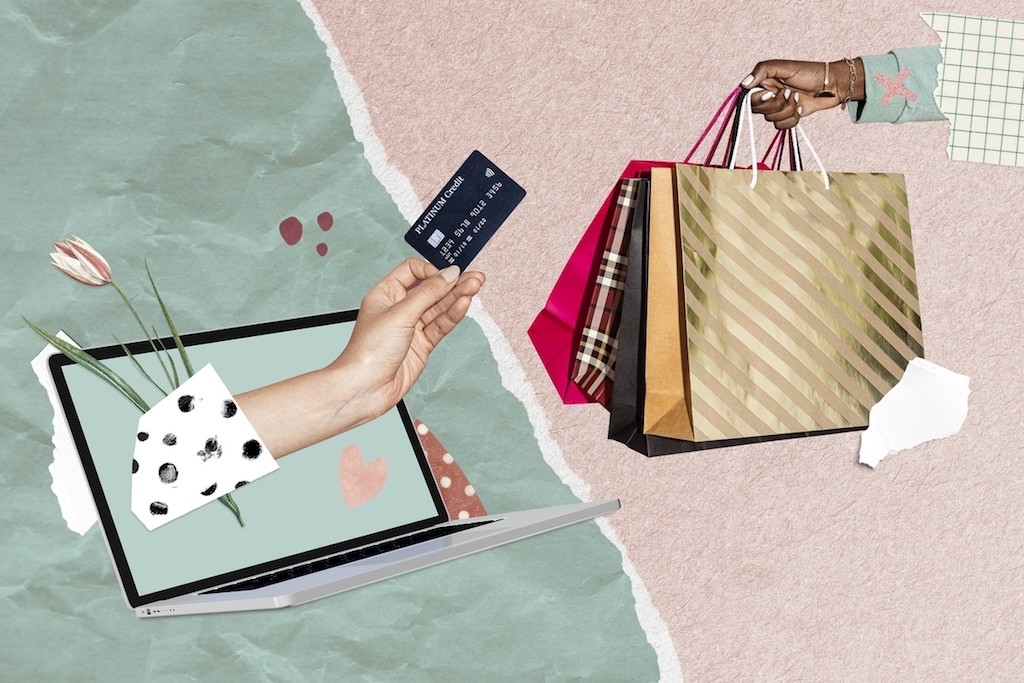Does impulse spending regularly get the better of you and your budget? Have you ever been in a situation where you promise yourself you’ll save money for that big holiday or house deposit, but you then find yourself splurging at the last minute on something you really don’t need?
You’re not alone.
According to Fashion Network UK, impulse buys add up to £37 billion annually. They go on to break down the top items we buy without thinking; ”56% of impulse purchasers buy clothing. Food and drink is next on 49%. Meanwhile home accessories are bought by 34% of people on impulse, with shoes being bought by 27% and jewellery by 22%”.
Hey, we’ve all been there. In fact, doing so is part of human nature; Psychology Today points to the reasons why we impulse buy, suggesting loss aversion, heuristics and a misdirected desire to ‘save’ all play a part.
In understanding those motivations, we can adopt some precautionary measures to prevent making those unnecessary purchases that just end up gathering dust in the attic or adding to landfill.
So, for the sake of both your bank balance and the environment, here’s how to limit impulsive spending and budget better.
Think Before You Buy
Before clicking “buy it now” or taking that impulse purchase up to the counter, stop and think for a second. In fact, why not make it ten seconds? Treat yourself to a time out before every buy, counting down from ten slowly and then looking at the bigger picture regarding your purchase.
Ask yourself; do I really want or need this thing or did it just look enticing in the heat of the moment? Analyse your own reasons for picking the item up or clicking on it, and ask yourself if this is something you’re actually going to use, where it will logically fit in your house, and if your finances genuinely allow for this transaction to take place.
Sometimes, the rush of making a frivolous purchase is better than the reality of the product you end up with. That’s down to dopamine, with an anticipatory thrill similar to that felt by drug addicts occurring in some shoppers. Once you get home with your product and the crash has begun, things might look very different; remember that.

Make It Physically Harder To Spend
If you find yourself idly perusing your favourite shopping platforms during your lunch breaks or walking past your favourite stores on the way home from work each day, it’s a good idea to address those triggers and change your habits accordingly. The more you distance yourself from your triggers, the harder it will be to spend.
As the London-based accountants GSM so sagely suggest, it’s also a good idea to be wary of saving your cards details for retail sites like Amazon or ASOS on your computer for easy checkout. It’s all too easy to buy things with one click. However, if you have to enter your payment information, it may make you think twice before you buy.
Avoid Using Credit Cards
Credit cards are an impulse buyer’s best friend. They make you feel as if you have unlimited access to funds when in reality you’re just buying yourself into the headache of debt further down the line.
While it’s always good to have credit cards for larger purchases (they offer protection against fraud, for one), try to keep them left at home, locked away or hidden wherever possible. Instead, consider investing in a prepaid card to curb your impulse spending habits. You can ‘upload’ a set amount to the card every month which is within your budget, and stick to it.
Budget Better
Speaking of budget, it’s time to set yourself one, and a limited one at that. Planning your finances and taking a more holistic look at your budgeting, there are plenty of apps to help you manage your precious pounds. We recommend Yolt, Emma and Money Dashboard, in particular. All of them do the hard work for you and are free to use, though there are paid options if you need a bit more help – yep, we realise the irony of that, too.
Read: 5 tips for bargain lovers to save money on Black Friday & beyond
Organise Your Wardrobe
As previously mentioned, Brits impulse buy clothes a lot. For many, it’s because we think we have nothing to wear. The answer; an organized wardrobe where you can see all of your clothes and know exactly what you own via a cursory appraisal alone.
In IDEAL’s article on curating the ideal closet (yes, we’re citing our own work), to help avoid impulse buying it was recommended to catalogue all your clothes so you know exactly what you own using the digital wardrobe app Whering. Hey, we couldn’t agree more. With. Ourselves.

Limit Late Night Access To Apps
Picture this; it’s after midnight and you know you should be asleep. Instead, you’re surfing the web, culminating in you buying a waffle maker that you’ll only use once. Regretable late-night online shopping is a problem for many of us, and we speak from experience (however good those waffles taste).
As reported by the Guardian, research suggests that “bedtime browsing by sleepless Brits in the middle of the night has resulted in a 23% increase in nocturnal spending”. The answer? Limit access to your apps at night and leave your phone in another room.
Something To Look Forward To
Finally, perhaps the best possible way to cut back on impulse spending is to give yourself one big goal to look forward to. This could be anything from saving up for a dream holiday to that car you’ve always wanted or that new kitchen you’ve been promising to get for months. Having that goal will give you something to save for and a tangible reason to cut back on your excess spending. Which is why you came here in the first place, right?





